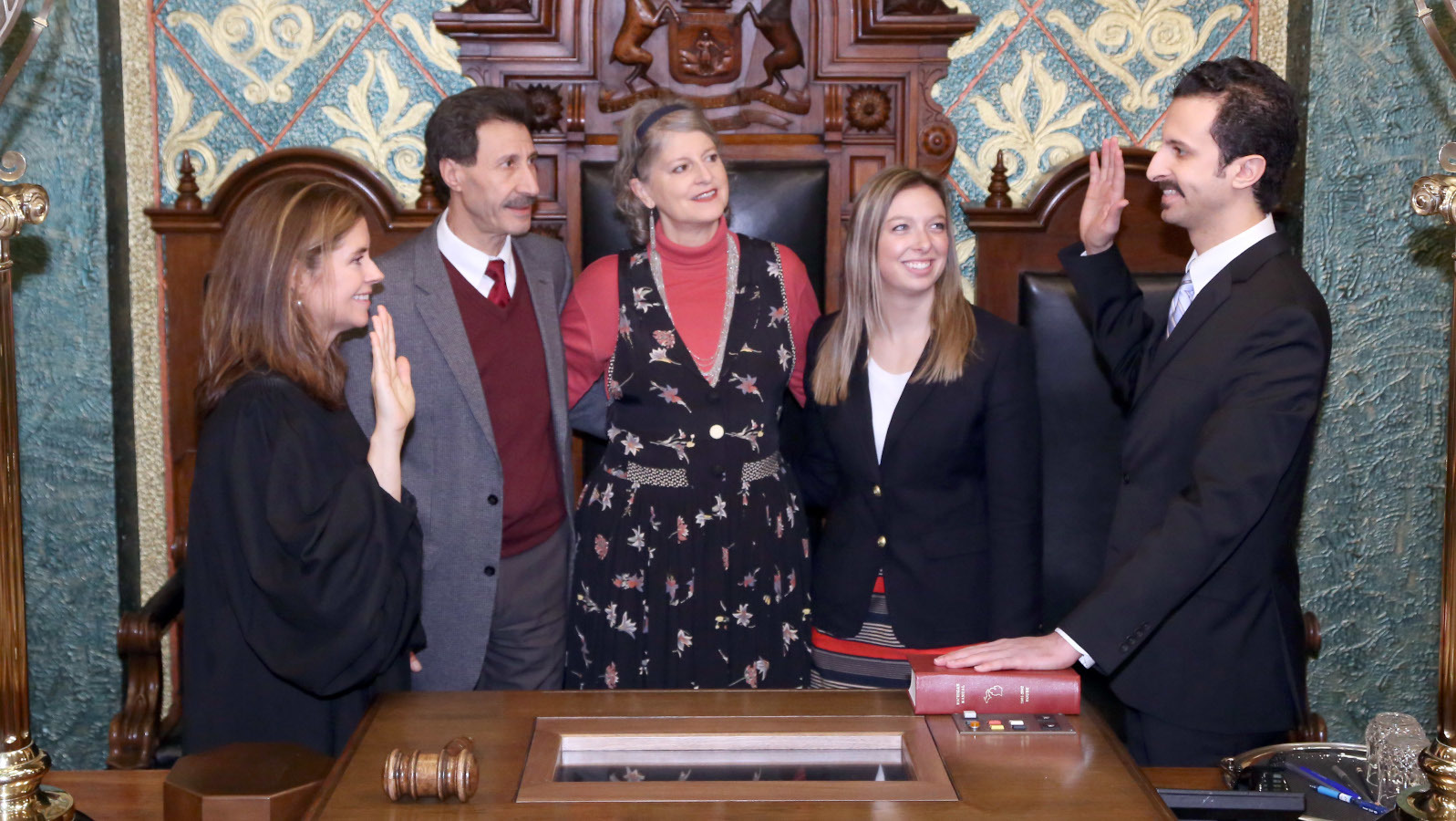Yousef Rabhi (right) and family members attend his swearing-in ceremony at the Michigan State Capitol in 2017. | Fdijulio/Wikimedia Commons
Yousef Rabhi (right) and family members attend his swearing-in ceremony at the Michigan State Capitol in 2017. | Fdijulio/Wikimedia Commons
Utility companies in Michigan made sizeable campaign donations to politicians sympathetic to their policy wishes and who are rivals to industry opponents.
Rivals of Democratic House Floor Leader Yousef Rabhi received more than $50,000 in contributions from DTE Energy, Consumers Energy, ITC Holdings and SEMCO, U.S. Energy News reported. These candidates are in the same political party, but have revealed more friendly policy positions when it comes to energy and regulation.
Rabhi is an outspoken critic of the industry and fought legislation in 2016 that would go on to limit the expansion of solar energy and co-sponsored legislation that would reverse some aspects of the bill that was passed in 2016. He also vocally refuses support from utilities when it comes to monetary donations.
“It’s another example of the utility industry spending money to make sure that its agenda is in some ways protected in statehouses," Matt Kasper, research director with the Energy & Policy Institute, told U.S. Energy News.
The industry seeks to influence policy from the ground up by providing sizeable donations to candidates who are more sympathetic to their cause, Bridge Michigan reported. Rabhi has been a key target for the industry as he shows his unwillingness to provide the industry with handouts.
Rabhi is not the first politician that this has happened to, either. Sen. Tom Barrett experienced something similar after he also opposed the 2016 energy legislation.
Democrats are not exclusively targeted, either. Republican Garry Glenn was defeated by a candidate who received funding from utility companies after Glenn vocally opposed the utilities in the state. Utilities have millions of dollars at stake with each piece of legislation that comes through the state government.
It's not just utilities that are spending on the races. It does push specific policy priorities, Simon Schuster, director of the Michigan Campaign Finance Network said. A legislator who opposes those priorities can draw the industry's ire.


 Alerts Sign-up
Alerts Sign-up